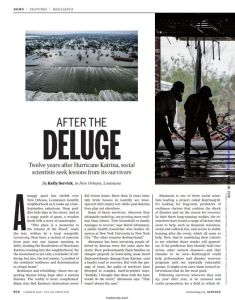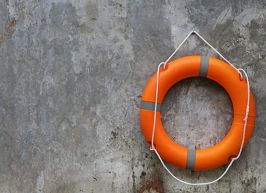加入 getAbstract 阅读摘要

加入 getAbstract 阅读摘要
Kelly Servick
After the Deluge
Twelve years after Hurricane Katrina, social scientists seek lessons from its survivors
Science, 2018
看看什么内容?
A long-term study identified resilience factors that helped Hurricane Katrina survivors recover.
Recommendation
More than a decade after Hurricane Katrina, three social scientists are still dedicated to compiling survivor experiences, as outlined in this article by Science writer Kelly Servick. Using analytical tools which track financial stability, housing and social interactions, the researchers identified specific factors which affect why people thrived or suffered after the 2005 storm. They intend to apply their results to future catastrophes such as fires, earthquakes and floods. The article will engage and inform anyone interested in mitigating human issues associated with disaster recovery.
Summary
About the Author
Kelly Servick is a staff writer for Science.

























Comment on this summary